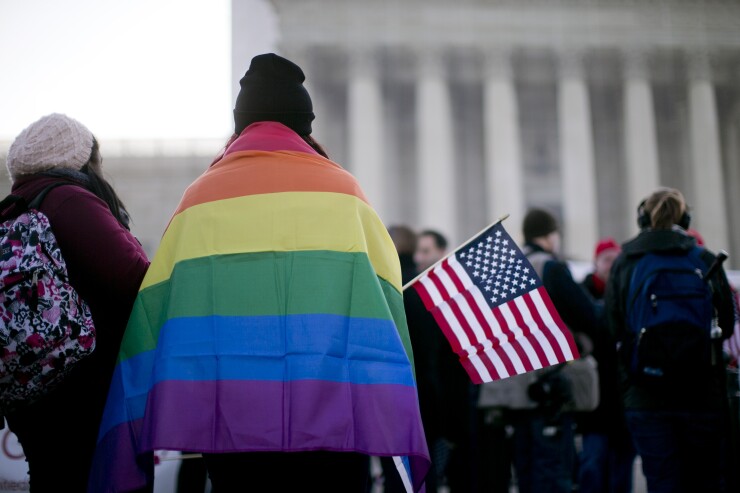Eyes are on Texas regarding the future of state employer-provided benefits to same-sex couples.
A recent Texas Supreme Court ruling sided with same-sex marriage opponents who argued that the city of Houston should not have extended its benefits policy to the spouse of a city employee in a same-sex marriage, throwing out a lower court ruling that had favored the benefits.
The plaintiffs contend that Houston’s benefits policy goes further than the 2015 U.S. Supreme Court’s Obergefell decision requires. The Texas Supreme Court, in Pidgeon v. Houston, agreed. In 2015, the Supreme Court
Experts warn there may be copycat lawsuits, but say they don’t anticipate any widespread changes that will affect private sector employers.

Todd Solomon, a Chicago-based partner with McDermott Will & Emery, says though some states could see some similar lawsuits come down the line, most employers would not challenge same-sex benefits.
“My take is that the impact [of the Texas case] is really limited to things like state government benefits and wouldn’t trickle into the private sector,” he says. “It would be such a retreat from where the momentum is going. If anything, [the private sector] has been adding more benefits for same-sex couples.”
According to recent research from the
While other states might see the case as fodder to instigate similar lawsuits, agrees Steve Friedman, co-chair of the employee benefits practice at Littler Mendelson, he notes ERISA is still in place for the private sector. What’s interesting, he says, is that the Texas case takes law that people thought was somewhat settled and gives an opening to individuals that might think about challenging things that aren’t so straightforward, such as where ERISA doesn’t apply.
“On the one hand we have same-sex marriage which is now universal, and on the other hand we provide state subsidies for same sex couples on the same bases as other couples,” he adds.
If this type of litigation arises in other states, Friedman says it could make the issue of same-sex marriage much more complicated than the way most see it today, where same sex couples have the same benefits as opposite sex couples
The Texas case dates to 2013, when two local taxpayers sued then-Houston Mayor Annise Parker. In their lawsuit, Jack Pidgeon and Larry Hicks argued no city employee has a “fundamental right” to receive government-subsidized spousal benefits and that it was “perfectly constitutional” to extend benefits to some married couples and deny them to others.
The case is





